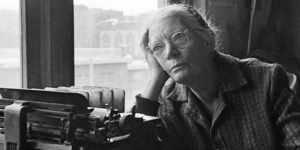The spiritual is political.
Connecting Inner and Outer Worlds
Go down to the palace of the king and declare, “Do what is just and right. Rescue from the hand of the oppressor the one who has been robbed. Do no wrong or violence to the foreigner, the orphan, or the widow, and do not shed innocent blood in this place.” —Jeremiah 22:1, 3
The primary role of religion and spirituality is to reconnect, the very meaning of the Latin word religio. The Greek word polis—which led to the word politics—simply means city or public forum, where people come together. Why have religion and politics become so antagonistic when they have similar goals?
The Hebrew prophets and Jesus clearly modeled engagement with both faith and the public forum. However, unlike its Jewish forbears, in its first two thousand years Christianity has kept its morality mostly private, personal, and heaven-bound with very few direct implications for our collective economic, social, or political life. Politics and religion remained in two different realms, unless religion was uniting with empires. Christianity looked to Rome and Constantinople for imperial protection; little did we realize the price we would eventually pay for such a compromise with Gospel values.
“Separation of church and state” is important to safeguard freedom of religion and ensure that governments are not dominated by a single religion’s interests. But that does not mean people of faith should not participate in politics. Today many believe that “inner work” is the purview of spirituality and that we should leave the “outer world” to politicians, scientists, businesses, and workers. Most of the negative feedback I receive is “Don’t get political!”
Yet how can I read the Bible and stay out of politics? Again and again (approximately 2,000 times!) Scripture calls for justice for the poor. The Gospel is rather “socialist” in its emphasis on sharing resources and caring for those in need.
Like it or not, politics (civic engagement) is one of our primary means of addressing poverty and other justice issues. I am not talking about partisan politics here, but simply connecting the inner world with the outer world. As a result of our dualistic thinking, the word “partisan” has come to be synonymous with the word “political.” And so many church-goers do not want to hear the Gospel preached—as it might sound political!
To be a faith leader is to connect the inner and outer worlds. In the United States’ not-so-distant-past, Christians were at the forefront of political and justice movements to abolish slavery, support women’s suffrage, protect civil rights, and establish and maintain Social Security, Medicare, and Medicaid. Today I am encouraged to see many of my Christian, Jewish, Muslim, and Buddhist brothers and sisters actively engaged with the political realm, speaking truth to power, and holding our political leaders accountable. Being political is a basic civic, human, and spiritual duty!

Leave a Reply